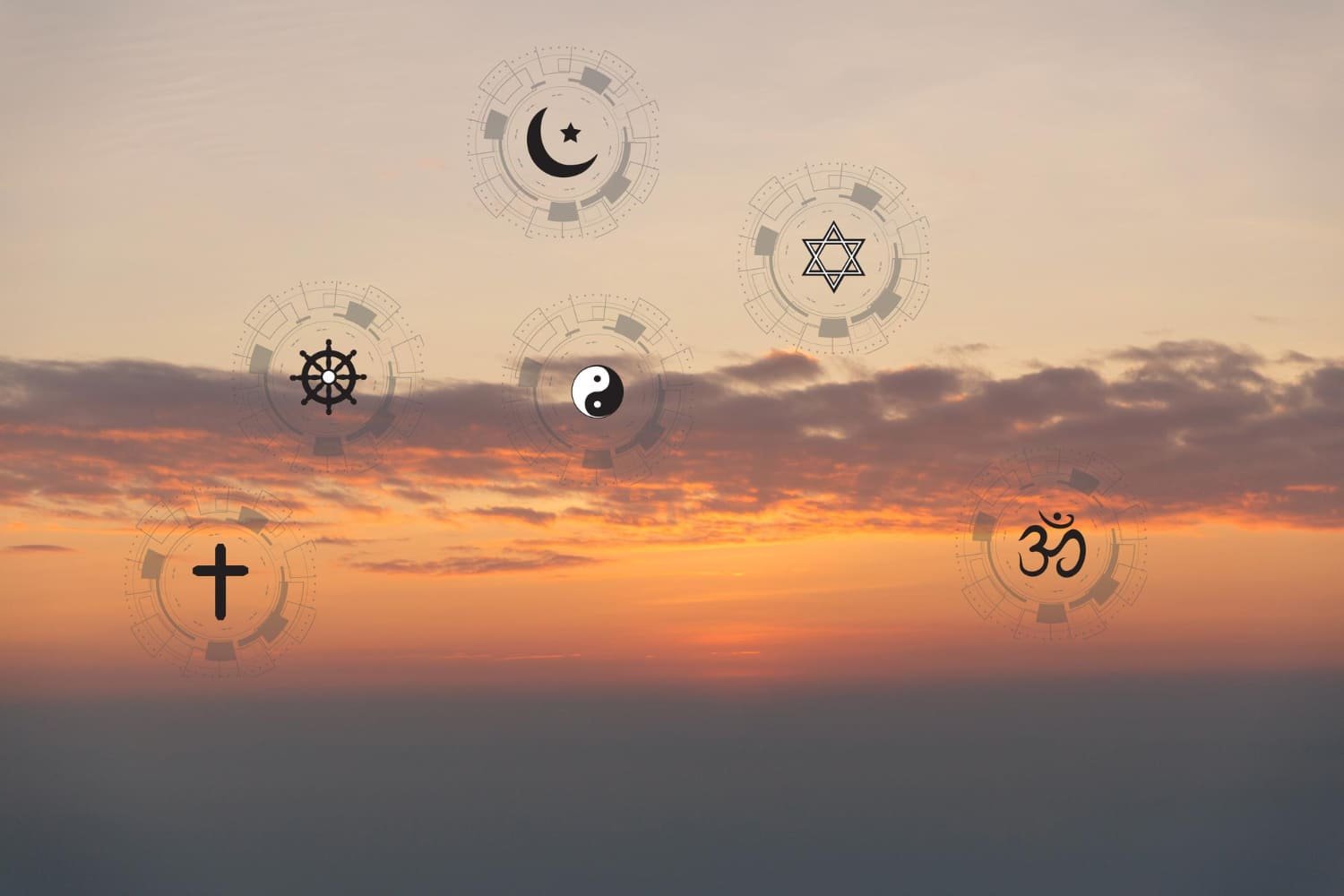Sikhism and Mormonism are two distinct religions with different beliefs and practices. Sikhism is a monotheistic religion that originated in the Indian subcontinent in the fifteenth century, while Mormonism is a relatively newer religion that emerged in the United States in the nineteenth century.
Both religions have their own unique traditions, rituals, and customs.
Despite some similarities in their teachings, there are significant differences between Sikhism and Mormonism. For example, Sikhs believe in the concept of one God, while Mormons believe in the existence of multiple gods.
Additionally, Sikhism emphasizes the importance of living a life of service and devotion to God, while Mormonism places a strong emphasis on family values and genealogy.
While both religions have their own strengths and weaknesses, it is up to each individual to decide which is better for them.
This article will explore the differences between Sikhism and Mormonism, and provide a comprehensive overview of their beliefs, practices, and traditions to help readers make an informed decision about which religion is right for them.
Beliefs and Practices of Sikhs
Sikhism is a monotheistic religion that originated in the Punjab region of India in the 15th century. It was founded by Guru Nanak Dev, who taught the importance of meditation, good deeds, and living a truthful life.
Sikhs believe in one God and the teachings of the ten Sikh Gurus. The primary scripture of Sikhism is the Guru Granth Sahib, which is considered the living Guru.
Sikhs believe in the concept of karma and reincarnation. They believe that a person’s actions in this life determine their fate in the next life. The ultimate goal of a Sikh is to achieve union with God through meditation and living a righteous life. Sikhs also believe in the importance of selfless service to others and the community.
The Five Ks are an important part of Sikh identity and practice. They include:
- Kesh: uncut hair and beard
- Kangha: a wooden comb to keep hair clean and tidy
- Kara: a steel bracelet to symbolize unity with God
- Kirpan: a small sword to defend oneself and others from injustice
- Kachera: cotton underwear to promote modesty and chastity
The Khalsa is a community of Sikhs who have undergone a special initiation ceremony. They are required to follow a strict code of conduct and wear the Five Ks at all times. The Khalsa is responsible for defending the Sikh community and upholding justice.
Beliefs and Practices of Mormons
Mormons, also known as members of The Church of Jesus Christ of Latter-day Saints, have a unique set of beliefs and practices that set them apart from other Christian denominations.
One of the core beliefs of Mormons is the concept of modern-day revelation. They believe that God continues to speak to His children through living prophets and apostles. This means that the Church’s leaders receive divine inspiration and guidance to lead the Church and its members.
Mormons also believe in the concept of eternal families. They believe that families can be together forever, not just in this life but in the afterlife as well. This belief is supported by the practice of temple marriage, where couples are sealed together for time and all eternity. In terms of practices, Mormons place a strong emphasis on living a righteous and moral life.
They follow a strict code of health called the Word of Wisdom, which prohibits the consumption of alcohol, tobacco, coffee, and tea. They also believe in tithing, or donating 10% of their income to the Church, as a way to support its programs and activities.
Mormons also have a strong tradition of missionary work. Young men and women are encouraged to serve full-time missions, where they spend 18-24 months preaching the gospel and serving others. This practice has led to a significant growth in the Church’s membership worldwide.
Overall, the beliefs and practices of Mormons are centered around their faith in Jesus Christ and their commitment to living a righteous and moral life. They believe in the importance of families and the concept of modern-day revelation, and they strive to share their message with others through missionary work.
Differences Between Sikhism and Mormonism
While both Sikhism and Mormonism are religions that have gained popularity in recent times, they differ in many ways.
Here are some of the key differences between the two religions:
- Origins: Sikhism originated in the Indian subcontinent in the 15th century, while Mormonism originated in the United States in the 19th century.
- Founder: Sikhism was founded by Guru Nanak, while Mormonism was founded by Joseph Smith.
- Beliefs: Sikhism is a monotheistic religion that believes in one God, while Mormonism is a polytheistic religion that believes in multiple gods. Sikhism believes in reincarnation and karma, while Mormonism believes in eternal life and the concept of becoming like God.
- Rituals: Sikhism has a strong emphasis on meditation, prayer, and community service. Mormonism has a strong emphasis on family, missionary work, and baptism for the dead.
- Scriptures: Sikhism’s main scripture is the Guru Granth Sahib, while Mormonism’s main scripture is the Book of Mormon.
Overall, Sikhism and Mormonism have different beliefs, practices, and origins. It is up to the individual to decide which religion resonates with them the most.
Comparing Sikhism and Mormonism
Sikhism and Mormonism are two distinct religions with unique beliefs and practices. While both religions share some similarities, there are significant differences that set them apart.
One of the main differences between Sikhism and Mormonism is their origin. Sikhism was founded in the 15th century in the Punjab region of India by Guru Nanak, while Mormonism was founded in the 19th century in the United States by Joseph Smith.
Another difference between the two religions is their belief in God. Sikhism is a monotheistic religion that believes in one God, while Mormonism is a polytheistic religion that believes in multiple gods. Mormons believe that God was once a human being who attained godhood, while Sikhs believe that God is eternal and unchanging.
Sikhism and Mormonism also have different beliefs about the afterlife. Sikhs believe in reincarnation and that the soul is reborn after death, while Mormons believe in the concept of eternal progression and that humans can become gods in the afterlife.
Additionally, Sikhism and Mormonism have different practices and rituals. Sikhs practice the Five Ks, which are five articles of faith that they are required to wear at all times. These include the kesh (uncut hair), kanga (comb), kara (steel bracelet), kirpan (sword), and kachera (undergarment).
In contrast, Mormons practice baptism for the dead, which involves performing baptism on behalf of deceased individuals who did not have the opportunity to be baptized during their lifetime.
Overall, Sikhism and Mormonism are two distinct religions with unique beliefs and practices. While there are some similarities between the two, there are also significant differences that set them apart.
Which is Better?
It is not appropriate to say which religion is better as it is a subjective matter. Both Sikhism and Mormonism have their own unique beliefs, practices, and traditions. It is up to the individual to decide which religion resonates with them more.
However, it is important to note that both religions promote values such as kindness, compassion, and service to others. Sikhism emphasizes the importance of seva, or selfless service, while Mormonism places a strong emphasis on missionary work and spreading the gospel.
When it comes to beliefs about God, Sikhism is a monotheistic religion that believes in one God, while Mormonism is a polytheistic religion that believes in multiple gods. Sikhism also places a strong emphasis on equality and rejects the caste system, while Mormonism has faced criticism for its past discriminatory practices towards people of color.
In terms of size, Mormonism has a larger following with over 16 million members worldwide, while Sikhism has around 30 million followers. However, it is important to note that the size of a religion does not necessarily determine its validity or superiority.
Ultimately, the decision of which religion is better is a personal one and should be based on individual beliefs, values, and experiences.







